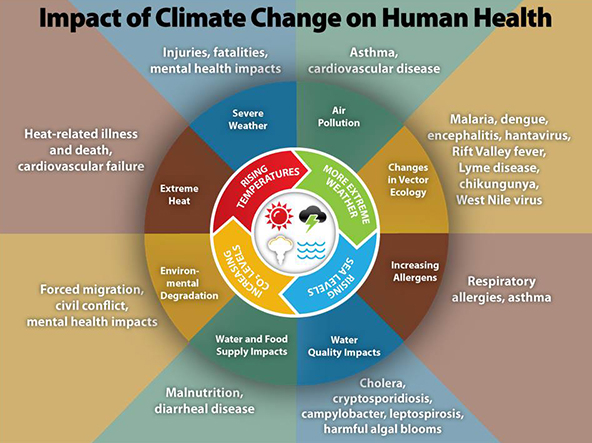
The Intersection: Climate Change, Mental Health, and a Need for Solutions
Climate change is no longer just an environmental issue; it’s a full-blown human crisis impacting our well-being in profound ways. Two under-discussed yet deeply connected aspects are its influence on mental health (topic 2) and the need for solutions that consider this link (combining topics 2 and 3).
The Weight of a Changing World:Anxiety and Despair:
Witnessing environmental degradation, extreme weather events, and the displacement of communities can be deeply unsettling. This constant barrage of negative news can lead to a pervasive sense of anxiety and hopelessness, especially for younger generations.
Loss and Grief: Climate change can force people to mourn the loss of their homes, livelihoods, and even cultural identities tied to specific landscapes. This “ecological grief” is a real and complex emotional response that deserves acknowledgement and support.Post-Traumatic Stress Disorder (PTSD): People directly experiencing climate disasters like floods, wildfires, or hurricanes can develop PTSD, struggling with reliving the trauma, emotional detachment, and hypervigilance.
The Need for Holistic Solutions:Mental Health Integration: Climate action plans need to incorporate mental health support systems. This could involve training disaster relief workers to recognize and address trauma, creating community support groups, and developing accessible mental health resources.
Building Resilience: Empowering communities to prepare for and adapt to climate change can foster a sense of control and reduce anxiety. This could involve education on disaster preparedness, community-based adaptation projects, and promoting sustainable practices that enhance local resilience.Nature as Therapy: Spending time in nature has proven benefits for mental well-being. Protecting green spaces and promoting access to nature can be a powerful tool for promoting mental health in a changing climate.
A Two-Way Street:Taking care of mental health is not just a consequence of addressing climate change, it can also be a powerful driver for solutions. Individuals who feel empowered and hopeful are more likely to take action and advocate for change.By creating a dialogue that acknowledges the mental health impacts of climate change and integrates mental health support into solutions, we can build a more resilient future for both our planet and ourselves.
Further Exploration:You could delve deeper into specific examples of communities struggling with the mental health impacts of climate change.Research existing initiatives that are integrating mental health support into climate action plans.
Explore the role of ecopsychology, a field that examines the relationship between humans and the natural world, in addressing the mental health aspects of climate change.By combining these two often-separate topics, we can create a more comprehensive understanding of the challenges we face and work towards solutions that address both the environmental and human dimensions of climate change.